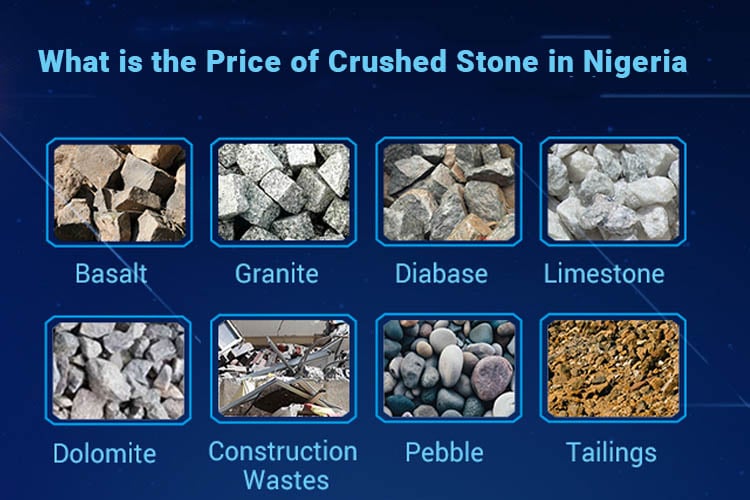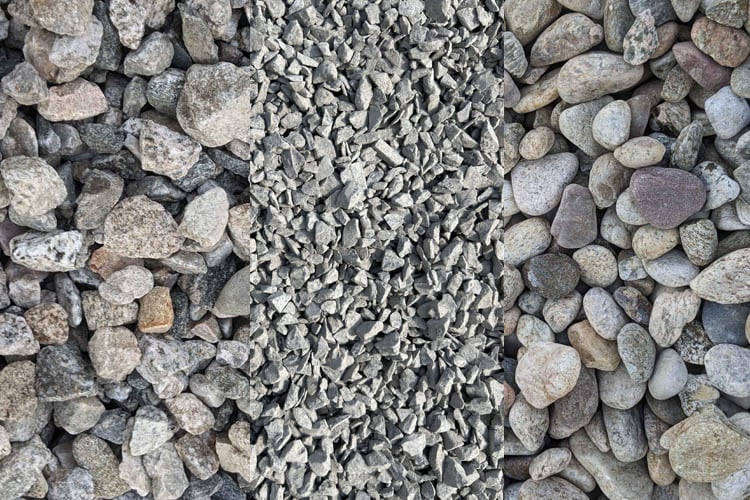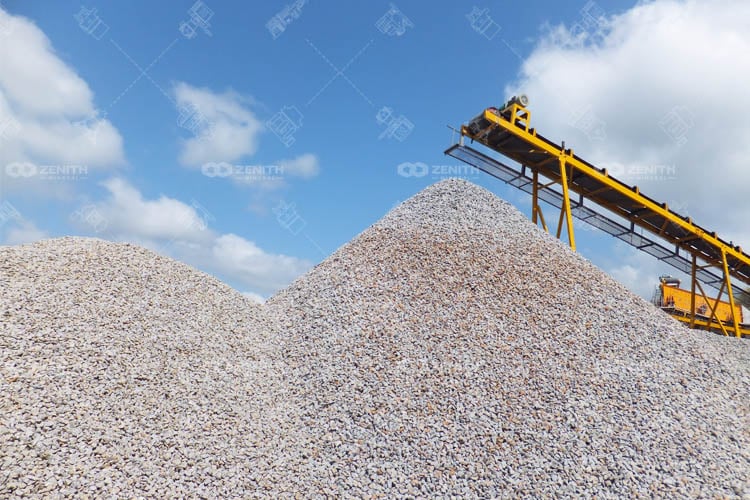What is the Price of Crushed Stone in Nigeria?
Crushed stone is a fundamental construction material used in various infrastructure projects, including road construction, building foundations, and concrete production. In Nigeria, the demand for crushed stone has been steadily increasing due to urbanization, government infrastructure projects, and private sector developments. However, the price of crushed stone varies significantly depending on factors such as location, quality, transportation costs, and market dynamics.

Key Factors Influencing Crushed Stone Prices in Nigeria
In Nigeria, the price of crushed stone typically ranges from ₦2,000 to ₦8,500 per ton, but this can vary widely based on numerous factors. For instance, basic laterite crushed stone, commonly used for road sub-bases, might start as low as ₦2,000 per ton, while high-quality, washed, and screened granite aggregates suitable for high-strength concrete can cost up to ₦8,500 per ton or more in some regions. These price variations are influenced by a complex interplay of elements, including the type of rock, processing quality, geographical location, transportation costs, market demand and supply dynamics, as well as regulatory policies.
1. Geological Composition and Rock Type
The type of rock used for crushing significantly impacts pricing due to variations in extraction difficulty, durability, and application suitability:
- Granite: One of the most prevalent crushed stones in Nigeria, granite is valued for its high strength and durability. Quarried primarily in states like Ogun, Ondo, and Kaduna, granite crushed stone is widely used in concrete production and road bases. Its price ranges from ₦4,000 to ₦6,500 per ton, depending on the granule size (e.g., 20mm, 40mm) and processing quality.
- Limestone: Predominantly found in Kogi, Sokoto, and Ogun states, limestone is softer and easier to crush, making it suitable for general construction and agricultural lime production. Prices typically range from ₦3,500 to ₦5,000 per ton, though high-purity limestone for industrial uses can cost up to ₦7,000 per ton.
- Basalt: Known for its abrasion resistance, basalt is ideal for high-traffic road surfaces and railway ballast. Quarried in Plateau and Bauchi states, basalt crushed stone commands a premium, ranging from ₦5,500 to ₦8,000 per ton.
- Laterite: A common local material, laterite is cheaper due to its abundance in southern Nigeria. Used primarily for road sub-bases, it costs between ₦2,000 and ₦3,500 per ton.

2. Processing and Quality Grading
Crushed stone quality is determined by:
- Particle Size Distribution: Uniformly graded aggregates (e.g., 10mm, 20mm) for concrete fetch higher prices (₦5,000–₦7,000/ton) than mixed-grade materials (₦3,500–₦5,000/ton).
- Fines Content: Excessive fines (particles <5mm) reduce usability in concrete, lowering prices by 10–15%.
- Washing and Screening: Washed aggregates free of clay and silt command a 20% premium, with prices reaching ₦6,000–₦8,000/ton for high-quality products.
3. Geographical Location and Transportation Costs
Nigeria’s vast landscape creates significant regional price disparities:
- Southwestern States (Lagos, Ogun, Oyo): As the economic hub, these states face high demand and limited quarries, driving prices up. Crushed granite here costs ₦5,500–₦7,000/ton, with transportation adding ₦500–₦1,500 per ton for deliveries beyond 50km.
- Northern States (Kaduna, Kano, Plateau): With abundant quarries, prices are lower: ₦4,000–₦5,500/ton for granite. However, transporting materials to southern markets can double the final cost.
- Rivers and Delta States: High humidity and limited quarries lead to premium prices for crushed stone, reaching ₦6,000–₦8,000/ton, plus ₦2,000–₦3,000/ton for inland transportation.
4. Market Demand and Supply Dynamics
- Infrastructure Projects: Government initiatives like the Lagos-Ibadan Expressway and second Niger Bridge have surged demand, pushing prices up by 15–20% since 2023.
- Real Estate Boom: Urbanization in cities like Lagos, Abuja, and Port Harcourt has increased demand for crushed stone in concrete and foundation works, straining supply and raising prices.
- Seasonal Fluctuations: Prices typically rise by 10–15% during the dry season (November–April) due to increased construction activity and reduced quarry productivity in rainy seasons.
5. Regulatory and Policy Factors
- Quarrying Licenses: Stringent regulations in states like Lagos and Ogun have reduced operational quarries, limiting supply and increasing prices by 5–10%.
- Environmental Taxes: New environmental levies on quarrying (₦200–₦500/ton) in Ogun and Ondo states have added to production costs.
- Import Duties: While Nigeria primarily relies on local crushed stone, imported aggregates (e.g., from China or Europe) face 20% import duties, making them less competitive at ₦8,000–₦12,000/ton.
Detailed Price by Crushed Stone Type
1. Granite Crushed Stone
| Grade/Size |
Price Range (₦/ton) |
Primary Applications |
Regional Variations |
| 40mm (coarse) |
4,000–5,500 |
Road bases, foundation aggregates |
Cheaper in Kaduna (₦4,000) vs. Lagos (₦5,500) |
| 20mm (medium) |
5,000–6,500 |
Concrete production, drainage systems |
Premium in Abuja (₦6,500) due to high demand |
| 10mm (fine) |
6,000–7,500 |
Masonry, decorative landscaping |
Highest in Port Harcourt (₦7,500) |
| Washed & screened |
7,000–8,500 |
High-strength concrete, bridge construction |
Lagos and Abuja markets command top prices |
2. Limestone Crushed Stone
| Type |
Price Range (₦/ton) |
Uses |
Notable Regional Prices |
| Industrial grade |
5,000–7,000 |
Cement production, chemical industries |
Kogi State (₦5,000) vs. Ogun (₦6,500) |
| Construction grade |
3,500–5,000 |
Brick making, road sub-bases |
Sokoto (₦3,500) cheaper due to local quarrying |
| Agricultural lime |
4,000–6,000 |
Soil conditioning, fertilizer production |
Oyo State (₦4,000) for local farmers |
3. Basalt and Other Specialized Aggregates
| Material |
Price Range (₦/ton) |
Niche Applications |
Regional Hotspots |
| Basalt |
5,500–8,000 |
Railway ballast, high-traffic roads |
Plateau State (₦5,500) due to local deposits |
| Laterite |
2,000–3,500 |
Low-cost road bases, landscaping |
Delta State (₦2,000) for abundant laterite |
| Recycled Concrete |
3,000–4,500 |
Sub-base layers, non-structural uses |
Lagos (₦4,500) due to waste recycling initiatives |
Cost Components of Crushed Stone in Nigeria
1. Extraction and Quarrying Costs
- License Fees: ₦500,000–₦2,000,000 annually for small to medium quarries, depending on state regulations. Equipment Investment: Crushers, excavators, and screening machines cost ₦10,000,000–₦50,000,000, amortized over 5–7 years.
- Labor and Fuel: Manual labor (₦20,000–₦30,000/day per worker) and diesel fuel (₦600–₦800/liter) for machinery operation.
2. Processing and Quality Control
- Crushing and Screening: ₦500–₦1,000/ton for basic crushing; ₦1,500–₦2,500/ton for washed and graded aggregates.
- Testing and Certification: ₦20,000–₦50,000 per batch for quality assurance, essential for government contracts.
3. Transportation and Logistics
- Short-Distance (0–50km): ₦500–₦1,000/ton via 5-ton trucks.
- Long-Distance (50–500km): ₦1,500–₦3,500/ton, with additional costs for road tolls and fuel surcharges.
- Bulk Shipping (e.g., Lagos to Port Harcourt): ₦2,500–₦4,000/ton via rail or coastal barges, though infrastructure limitations often drive up costs.
4. Market and Distribution Margins
- Wholesale to Retail Markup: 20–30%, with retailers in urban areas charging higher margins (30–40%) due to competitive demand.
- Government Contract Markups: Projects often include a 15–25% premium for certified suppliers meeting regulatory standards.
Market Trends and Future Projections
1. Rising Demand for High-Quality Aggregates
- Infrastructure Projects: The Nigerian government’s ₦30 trillion infrastructure plan (2023–2028) is expected to drive crushed stone demand by 12–15% annually, particularly for granite and basalt in road and bridge construction.
- Concrete Industry Growth: With Nigeria’s cement production reaching 18 million tons/year, crushed stone demand for concrete is projected to increase by 8–10% annually, pushing prices up by 5–7% per year.
2. Sustainability and Recycling
- Recycled Aggregates: As environmental regulations tighten, recycled concrete and asphalt aggregates are gaining traction, with prices expected to fall by 10–15% by 2026 due to economies of scale. Lagos and Abuja now have dedicated recycling plants producing 50,000 tons/month.
- Green Quarrying Practices: Quarries adopting water recycling and dust control systems can command a 5–10% price premium in eco-conscious markets.
3. Technological Innovations
- Automated Quarrying: Companies like Lafarge Africa are introducing automated crushers and drones for quarry mapping, reducing labor costs by 20% and potentially lowering prices by 5–8% in the long term.
- Digital Marketplaces: Online platforms connecting quarries to contractors (e.g., BuildTrack Nigeria) are reducing middleman markups by 15–20%, leading to more transparent pricing.
4. Macroeconomic Factors
- Exchange Rate Fluctuations: A depreciating naira (₦750–₦800/USD in 2025) increases the cost of imported quarry equipment, potentially raising production costs by 5–10%.
- Inflation Impact: Nigeria’s high inflation (18–20% in 2025) drives up labor and fuel costs, contributing to annual price increases of 7–9% for crushed stone.




